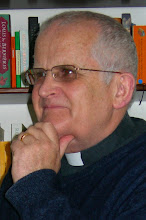Mark 6:1 – 6a Rejection at Nazareth
Jesus comes to his hometown, Nazareth (so 1:9). This confrontation recalls the question of who is the true family of Jesus (3:19-35): where is he from, what/who defines his honor and standing? Here we have a sustained and comprehensive attempt to challenge the honor of Jesus by the inhabitants of Jesus’ hometown:
- Where does all this come from?
- What is this wisdom that’s been given to him?
- What mighty works are done through his hands?
- Isn’t he a manual worker?
- Isn’t he the son of Mary and the brother of … ?
- Don’t his sisters still live here with us?
The implied assertion is that “Jesus can be no better than we are!” “We know everything that is to be known about him. You can’t tell us anything about him!” It’s the “tall poppy syndrome”. (I have argued that the issue of “where Jesus is from” is raised to an art form in the Fourth Gospel.) Our privileged vantage point as readers allows us to feast on the irony of their claim to know everything when in reality they know nothing. However, at the same time, to move Jesus’ identity away from his family is a source of shame and dishonor. There must be a new source of honor.
Jesus riposte is to quote a piece of gnomic wisdom: a prophet will receive honor everywhere except in his own country-village-family. If Jesus is dishonored by standing out from his (natural) family, he receives honor from his common experience with the rejected prophets. As with the sin against the Holy Spirit, some will make choices that place themselves outside the influence of the power of God.
There are several historical issues that lie beneath this story: where was Jesus’ hometown; was Jesus the manual worker/craftsman or was it his father; is the naming of a person in relation to his mother an insult; is this good information about Jesus having siblings? This is the only occasion in Mark where the mother of Jesus is named as 'Mary'.
Mark 6:6b – 13 The Mission Charge to the Twelve
Those who were called to be with Jesus were also sent out to proclaim the message (3:14) and will, in time, be witnesses to the risen Jesus (1 Cor 15:5). The twelve travel light, carrying little more than their given authority over the unclean spirits. From its origin, the church is missionary. In its style it is open to welcome and hospitality (in contrast to the Cynic philosophers. See Donahue 193). In its timing it is urgent.
The activity of the twelve will form the backdrop for the long interlude on the death of John the Baptist. (This is one of those "Markan Sandwiches") They will return at its closing (6:30)
Mark 6:14 – 29 Jesus and John the Baptist
Jesus’ ministry had been prepared for by the Baptist and had begun on his arrest (1:14). Everything that has happened to this point has had the imprisoned Baptist as its background. The murder of the Baptist brings us face to face with the fate of Jesus and his twelve.
The length and (gruesome) detail of the story mark it out as an important extended metaphor: Is Jesus the one whom Herod executed, now raised? Jesus is John? We meet Herod Antipas (tetrarch of Galilee and Perea) his half brother Philip (a lesser tetrarch), Philip’s (former?) wife Herodias. her daughter (Salome?) and a gopher/soldier. Herodias has it in for John because he has denounced her marriage while Antipas has a certain fascination for John. It’s another episode of Soap! A court drama with a powerful woman behind the throne; I am reminded of Jezebel conspiring to deliver Naboth’s garden to the petulant King Ahab (1 Kings 21). Antipas suffers from a rush of blood to the head and, in front of his drinking buddies, makes a promise to Salome from which he cannot back down.
The “Gentile rulers lord it over them” comment (10:42) seems hand written for all the Herods. The contrast in the comment is to the Son of Man who came not to be served but to serve and give his life a ransom. He too had his disciples who came and collected his body and laid it in a tomb. The preaching of the Kingdom is never too far away from death and resurrection.


0 Comments:
Post a Comment
<< Home